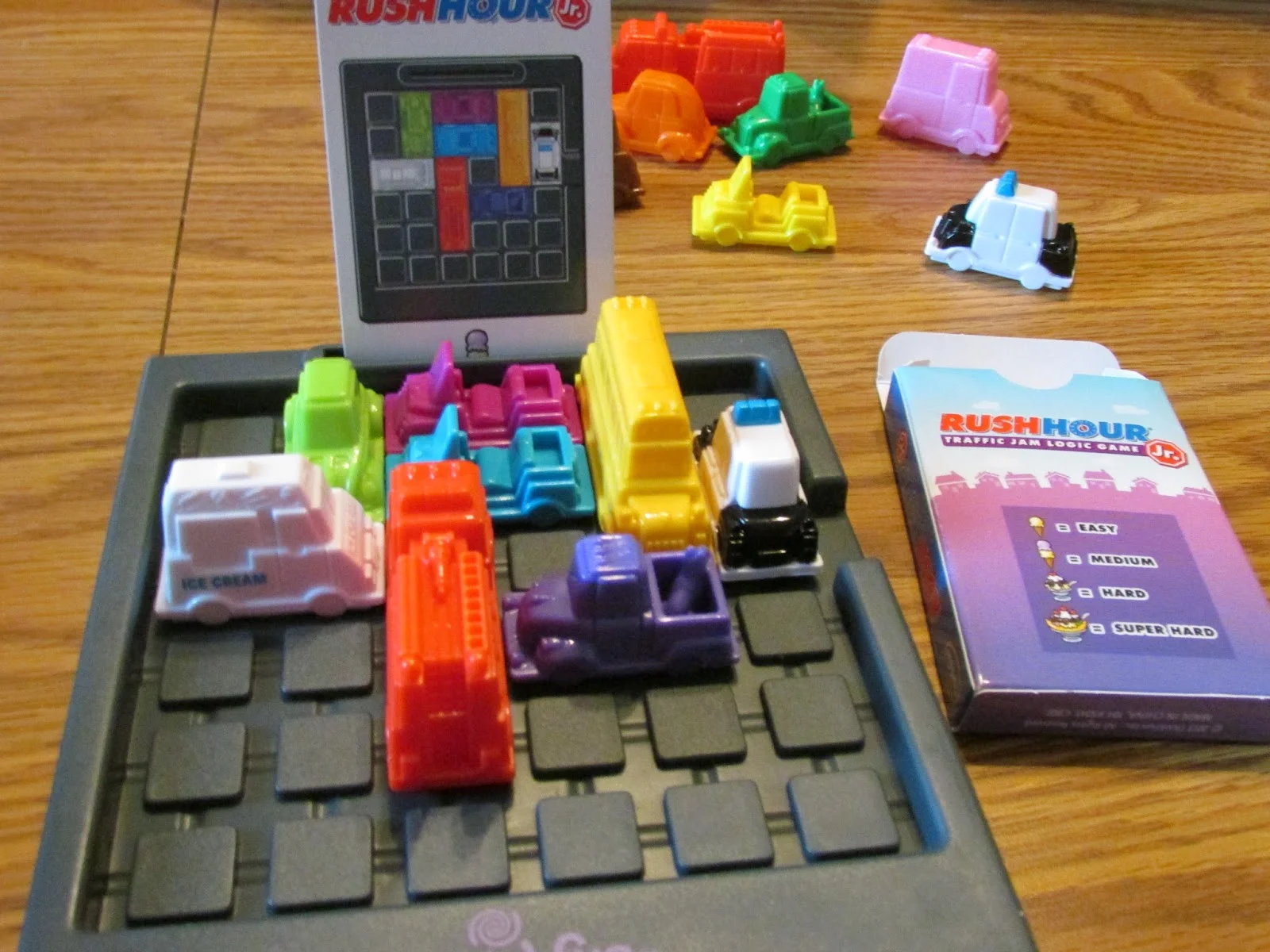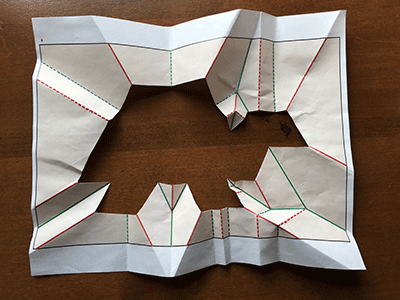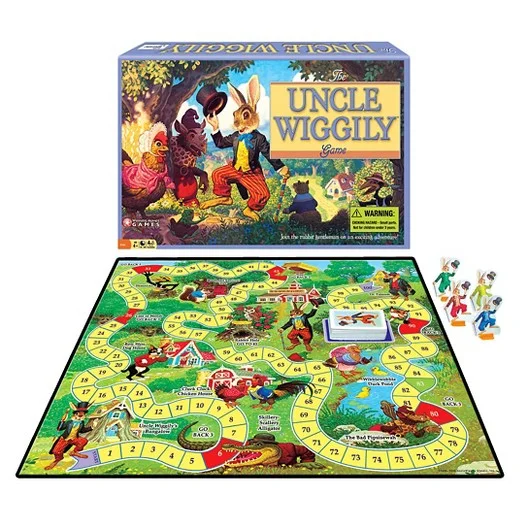During winter break, our family drove to Atlanta to visit some family and friends. I wanted to get a game that my son J could play in the car, so I picked up Rush Hour Jr. It's a lovely little solitaire logic game that travels easily in a car or on a plane.
Read MoreLast week, my city of Birmingham was predicted to have 0.5 inches of snow, so naturally my school district shut down for two and a half days. Welcome to Alabama.
By the last day, I was going pretty crazy trying to think of activities for my kids to do, so I pulled out an activity I've used with kindergarteners and 8th graders alike: the fold-and-cut challenge
Read MoreWant to hear something crazy? Back in the 80s, researchers watched a bunch of 4-year-olds play with blocks to see how sophisticated their block play was. Were the kids stacking the blocks at random without regard to their shapes, or were they using the properties of the blocks to make sturdy, steady castles and towers?
When the researchers checked in on those same kids in high school, they found out that the kids who had been more sophisticated block builders at age 4 were more likely to take higher-level math courses and to perform well within their courses.
Seems bizarre, right? But actually, the connection between block play and mathematical ability is one of the most heavily researched areas of young children's development. Block play is heavily tied to spatial reasoning, which is how kids and adults think about objects in relation to each other.
Read MoreThis week's "game" is actually a book by one of my favorite authors and math thinkers, Christopher Danielson. Christopher is the creator of the Talking Math with Your Kids website, where he has collected all sorts of great resources and conversation prompts for you and your kids. Many of my ideas about mathematical talk come from Christopher, so if you like what you read here, be sure to check out his site.
Not only that, Christopher has a side business making beautiful mathematical toys for kids. I own a copy of just about every set of blocks that he has made, and I can't recommend them highly enough. On to the book!
Read MoreSET is a family favorite for me because it is equally challenging for young kids, teenagers, and adults. Also, any amount of people can play, and folks can walk by and join the game whenever they like. It's perfect for a big family gathering as well as a fun one-on-one conversation with your child.
Read MoreCommercial board games are great fun, but sometimes you just need a way to kill 10 minutes while dinner is cooking. In those situations, I like to pull out little games like the Hiding Game to start a conversation
Read MoreTiny Polka Dot was developed by Katherine Cook and Dan Finkel, the math teacher and designer of Prime Climb that we featured in our Holiday Gift Guide a couple of weeks back.
Prime Climb is a great game for kids who know how to multiply and divide, but Dan wanted to make a game that was accessible to younger players as well as older kids. In my opinion, he succeeded marvelously.
The motto of Games for Young Minds is Play games. Ask questions. So far, I've spent most of my time recommending games that have innate mathematical ideas. But I firmly believe that your children will learn more when you talk with them about the math ideas you encounter in the games you play together.
Today, I'd like to share a mini-game I invented with my son that enriched his comparative thinking, while making game time more fun for me.
Your kids are home for two weeks, running circles around the dinner table and driving each other crazy. You need something, anything to keep them occupied for half an hour. Well, not to worry! Games for Young Minds is here to help.
I've already written about Sorry, Blokus, and Shut the Box, all of which make great gifts. But there is a world of other games that help your kids encounter mathematical ideas that will keep their brains moving throughout winter break. Not only that, your children will be having so much fun, they won't even realize that they're learning!
Shut the Box is a classic game that has been played for decades in pubs throughout England. But don't worry, there is no drinking or gambling involved. Just some great, challenging mathematical play. In fact, this game is easy enough for a kindergartner to learn, but tough enough that I'm still trying to figure out how to reliably beat it!
Read MoreMy son never lets me pick the games we play. But if he did, I would pick Blokus.
I love Blokus because the rules are easy enough for a 4 year old to grasp, but the strategy is complex enough to challenge any child or adult. I would just as happily play this game with three other grown-ups as with three kids.
Sorry! is a classic board game for a reason - it’s easy enough to play with a 5 year old, yet complex enough to enjoy with older kids. If you’re new to playing games with your kids, this is a great place to start. As long as your child is old enough to recognize the numbers on the cards, she is ready to play Sorry!
Read More











